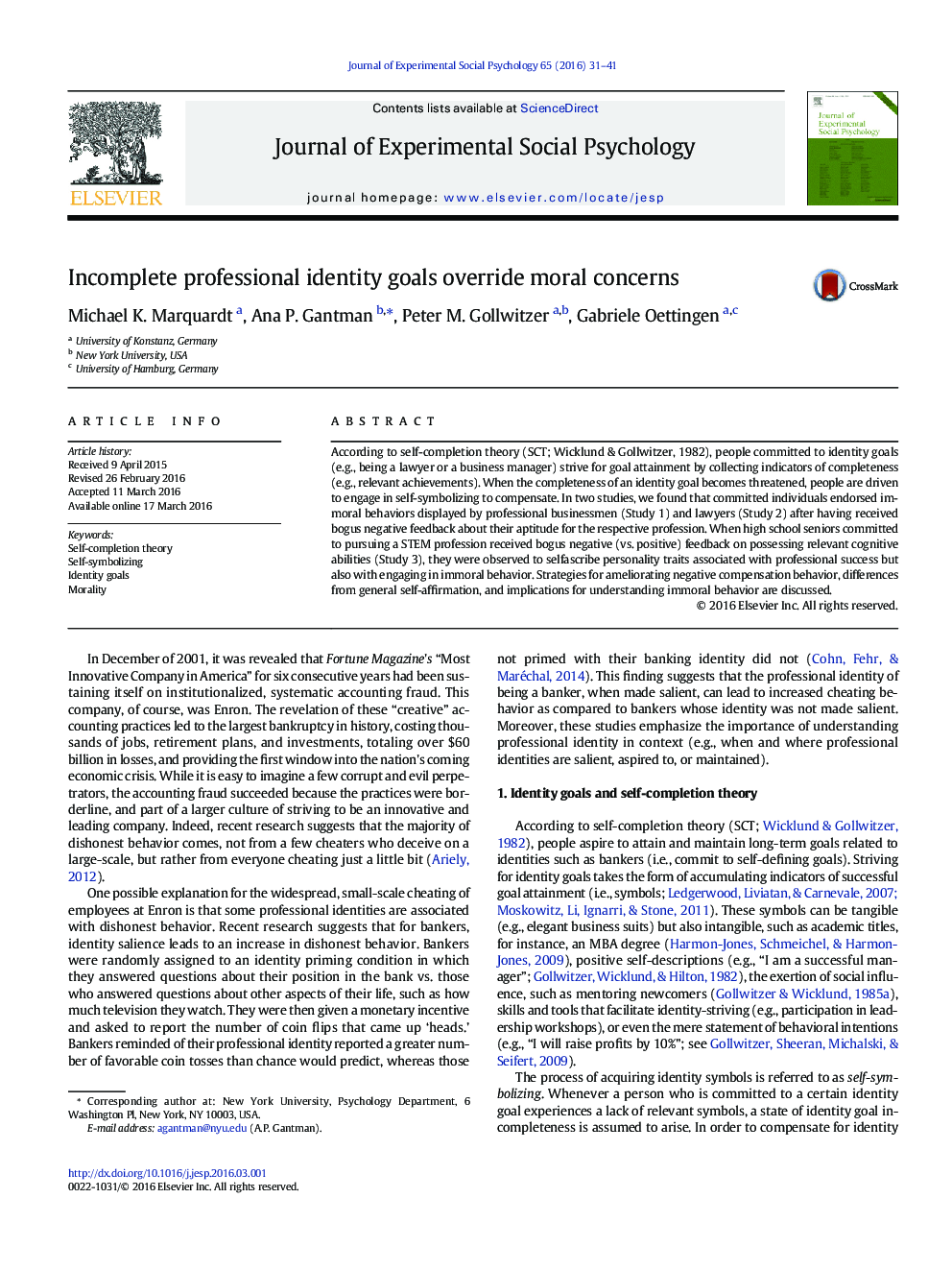| کد مقاله | کد نشریه | سال انتشار | مقاله انگلیسی | نسخه تمام متن |
|---|---|---|---|---|
| 947661 | 1475858 | 2016 | 11 صفحه PDF | دانلود رایگان |
According to self-completion theory (SCT; Wicklund & Gollwitzer, 1982), people committed to identity goals (e.g., being a lawyer or a business manager) strive for goal attainment by collecting indicators of completeness (e.g., relevant achievements). When the completeness of an identity goal becomes threatened, people are driven to engage in self-symbolizing to compensate. In two studies, we found that committed individuals endorsed immoral behaviors displayed by professional businessmen (Study 1) and lawyers (Study 2) after having received bogus negative feedback about their aptitude for the respective profession. When high school seniors committed to pursuing a STEM profession received bogus negative (vs. positive) feedback on possessing relevant cognitive abilities (Study 3), they were observed to selfascribe personality traits associated with professional success but also with engaging in immoral behavior. Strategies for ameliorating negative compensation behavior, differences from general self-affirmation, and implications for understanding immoral behavior are discussed.
Journal: Journal of Experimental Social Psychology - Volume 65, July 2016, Pages 31–41
